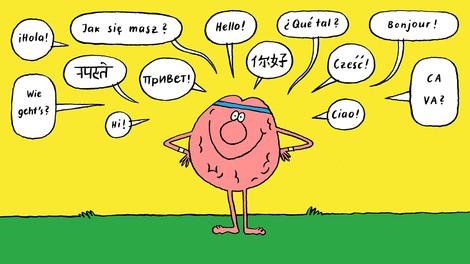Your podcast discovery platform
Curious minds select the most fascinating podcasts from around the world. Discover hand-piqd audio recommendations on your favorite topics.

piqer for: Boom and bust Health and Sanity Global finds Doing Good
Danielle Batist is an experienced freelance journalist, founder of Journopreneur and co-founder of the Constructive Journalism Project. She lived and worked all around the globe and covered global and local stories of poverty, exclusion and injustice. Increasingly, she moved beyond ‘problem-reporting’ to include stories about the solutions she found. She witnessed the birth of the new nation of South Sudan and interviewed the Dalai Lama. She reported for Al Jazeera, BBC and the Guardian and regularly advises independent media organisations on innovation and sustainability. She loves bringing stories to the world and finding the appropriate platforms to do so. The transformation of traditional media fascinates rather than scares her. While both the medium and the message are changing, she believes the need for good storytelling remains.
Fatherland, Mother Tongue – The Power Of Two Languages
“Do you notice she responds better to one or the other language?” the health professional asked at my daughter’s developmental check-up. I had explained that I speak a different language to her from her dad, and even though my daughter seems absolutely fine with both, the health professional was a bit puzzled by it. Although 60–75% of the world's population (estimates vary) speak at least two languages, in the UK only 14% do.
Before our daughter was born I did some research into bilingualism and I was amazed by the documented benefits. They ranged from better cognitive abilities as a result of multi-tasking to a four-year delay in the onset age for Alzheimer’s disease.
I was pleased to come across this long-form article on Mosaic, a magazine ‘dedicated to exploring the science of life’. In it, author Gaia Vince takes part in various scientific experiments that prove the positive effects of bilingualism on the brain.
She cites fascinating research into the capacity for language to change people’s perspectives. In one example where English and German speakers were tested, their answers depended on the geographic location, showing how intertwined culture and language can be in determining a person’s worldview.
What I liked about this piece too is that Vince does not shy away from highlighting the way languages have been used to enforce political views in society – something that seems sadly all the more relevant in today’s divided world.
“The emergence of European nation states and the growth of imperialism during the 19th century meant it was regarded as disloyal to speak anything other than the one national language. This perhaps contributed to the widely held opinion – particularly in Britain and the US – that bringing up children to be bilingual was harmful to their health and to society more generally.”
In two weeks’ time the UN will host International Mother Language Day. The spread of scientific evidence through articles like this could help more people value language diversity.
Stay up to date – with a newsletter from your channel on Health and Sanity.

So fascinating. Thanks for sharing this.